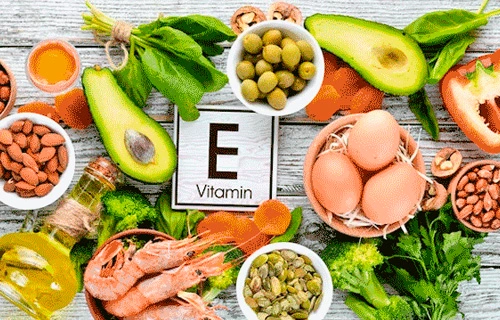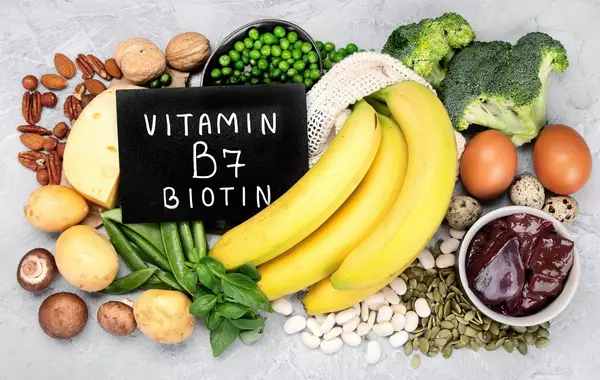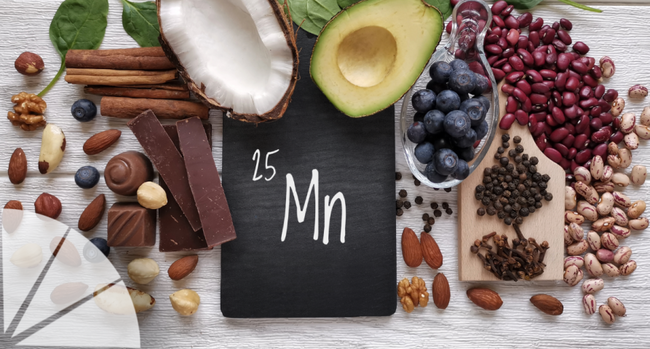Vitamin E

If you tested your DNA with a personal genomics service like 23andMe, AncestryDNA, FamilyTreeDNA, MyHeritage or another testing company, you can learn more about your risk factors for hundreds of diseases. By clicking the button above ⬆️, you can upload your raw DNA data file and receive a personalized 250-page health report with research links that is the most comprehensive.
Vitamin E is widely acknowledged for its crucial role in shielding cell components from oxidative harm. Nevertheless, emerging evidence indicates that the health advantages of VE extend beyond its function as an antioxidant in lipid-rich environments. In humans, VE is directed towards pathways involved in managing lipoproteins and cholesterol, emphasizing its significance in lipid processing and metabolism. From a genetic standpoint, individuals may vary in their levels of vitamin E, necessitating personalized intake plans based on their genetic makeup.
APOA5 Gene: The APOA5 gene encodes the Apolipoprotein A-V protein, crucial for fat transport, including vitamin E. Variations in two SNPs of this gene can influence the body's vitamin E requirements.
CYP4F2 Gene: The CYP4F2 gene produces the CYP4F2 enzyme, involved in vitamin E breakdown. Certain alleles of this gene are associated with higher vitamin E levels in the body.
TTPA Gene: The TTPA gene produces the alpha-tocopherol transfer protein, facilitating vitamin E transfer within the body. Mutations in the TTPA gene can lead to Ataxia with Vitamin E Deficiency (AVED), a rare inherited disorder causing vitamin E deficiency. In AVED, the transfer protein necessary for processing vitamin E into usable forms is either absent or dysfunctional, necessitating higher vitamin E intake levels than recommended.
Follow the link of the selected polymorphism to read a brief description of how the selected polymorphism affects Vitamin E (tocopherol) and see a list of existing studies.
SNP polymorphisms related to the topic Vitamin E (tocopherol):
| rs1695 | When vitamin E is consumed, an increase in IL6 production is observed in carriers of this genotype, i.e. a pro-inflammatory effect is observed. |
| rs12272004 | The polymorphism is associated with decreased circulating vitamin E levels. |
| rs964184 | Involved in lipid and vitamin E metabolism. The genotype is a moderate risk factor for reduced vitamin E levels. A low-fat diet is suitable for people with this defect. On a low-fat diet (20% of energy comes from fat), carriers of the risk allele (allele G) had greater reductions in OX and LDL cholesterol levels. These studies showed better lipid profile improvement with long-term low-fat dietary intake in the risk allele G. |
| rs11057830 | Involved in lipid and vitamin E metabolism. Genotype is a moderate risk factor for reduced vitamin E levels. |
| rs6564851 | Associated with higher levels of beta-carotene and tocopherol in the blood, independent of intake from food. |
About The Author
Li DaliLi Dali, a National Foundation for Outstanding Youth Fund recipient, is a researcher at the School of Life Sciences in East China Normal University. He earned his PhD in genetics from Hunan Normal University in 2007 and conducted collaborative research at Texas A&M University during his doctoral studies. Li Dali and his team have optimized and innovated gene editing technology, leading to the establishment of a world-class system for constructing gene editing disease models.


